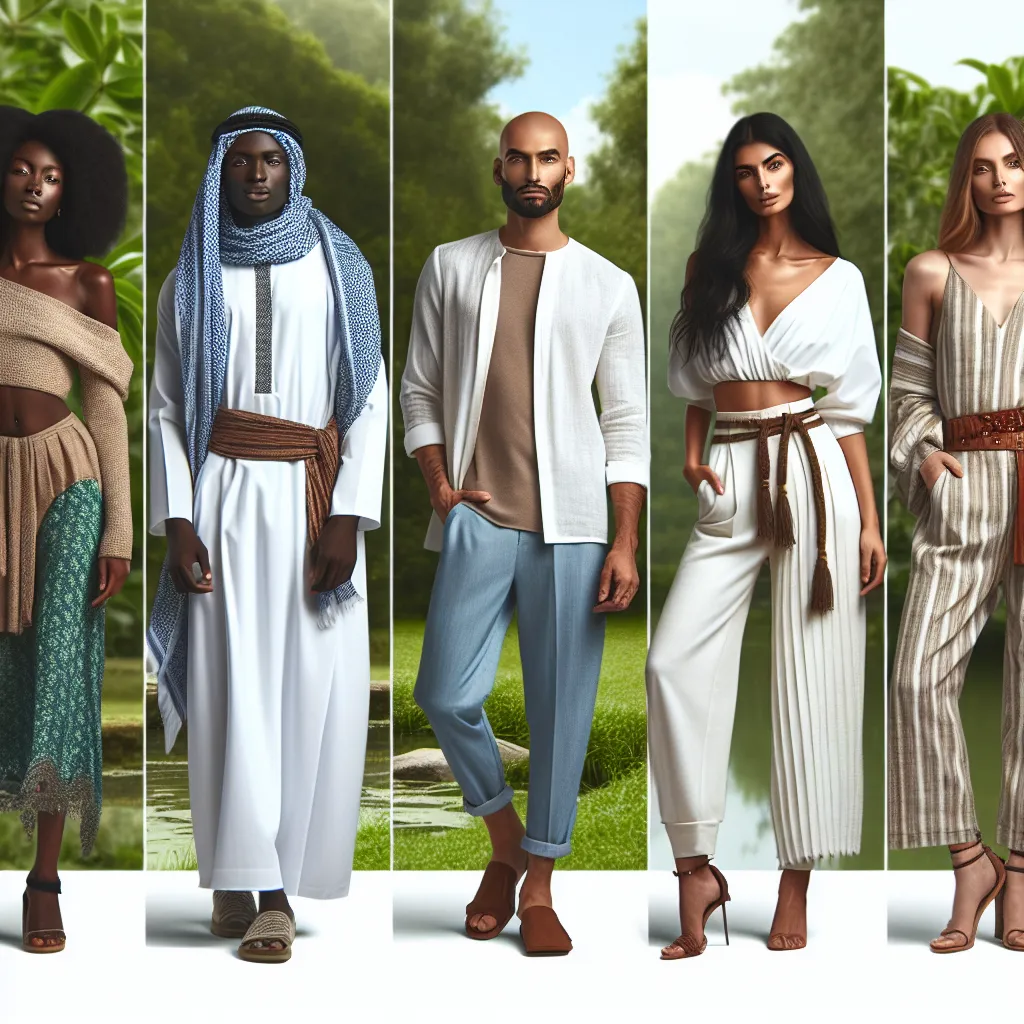
Exploring Sustainable Fashion Trends for the Modern Consumer
The Rise of Eco-Friendly Fabrics in Fashion
One of the most notable trends in sustainable fashion for the modern consumer is the increasing popularity of eco-friendly fabrics. As awareness of environmental issues continues to grow, so does the demand for clothing made from materials that have a reduced impact on the planet. This shift has led to a rise in the production and availability of eco-friendly fabrics in the fashion industry.
Eco-friendly fabrics, such as organic cotton, hemp, bamboo, and recycled polyester, have gained traction in the fashion world due to their sustainable properties. Organic cotton, for example, is grown without the use of synthetic pesticides and fertilizers, reducing the environmental footprint of cotton production. Similarly, hemp is known for its minimal need for water and pesticides, making it a highly sustainable choice for clothing and accessories.
Another increasingly popular eco-friendly fabric is bamboo, which is not only highly renewable but also requires minimal water and no pesticides to grow. Additionally, recycled polyester, made from post-consumer plastic bottles and other recycled materials, helps reduce the amount of plastic waste in landfills while offering a versatile and durable fabric for a wide range of fashion items.
Consumers are now seeking out clothing and accessories made from these eco-friendly fabrics, driving fashion brands to incorporate sustainable materials into their collections. As a result, the market for eco-friendly fabrics in fashion is rapidly expanding, offering consumers a wider range of sustainable choices without compromising on style or quality.
In conclusion, the rise of eco-friendly fabrics in fashion reflects a significant shift towards sustainability in the industry. With a growing emphasis on environmental consciousness, the use of sustainable materials is becoming a key focus for fashion brands and a desirable attribute for the modern consumer.
Ethical and Transparent Supply Chains in Sustainable Fashion
When it comes to sustainable fashion, one of the key aspects that modern consumers are increasingly concerned about is the implementation of ethical and transparent supply chains. An ethical supply chain in sustainable fashion refers to the sourcing, production, and distribution processes that prioritize the well-being of workers, communities, and the environment. This includes fair wages, safe working conditions, and eco-friendly manufacturing practices.
Transparency plays a crucial role in ensuring that sustainable fashion brands uphold their ethical commitments. Consumers are demanding access to information about where and how the products they are purchasing are made. This has led to a growing trend of brands embracing transparency in their supply chains, providing visibility into their sourcing partners, production facilities, and the overall environmental impact of their operations.
Furthermore, technological advancements such as blockchain are being leveraged to bring greater transparency to supply chains in the fashion industry. By utilizing blockchain technology, companies can create immutable records of every stage of production, enabling consumers to trace the journey of a garment from raw materials to the finished product.
Overall, as the demand for sustainable fashion continues to rise, the emphasis on ethical and transparent supply chains has become a defining factor for brands aiming to cater to the modern consumer. By prioritizing these aspects, fashion companies can build trust, meet consumer expectations, and contribute to the advancement of a more sustainable and ethical industry.
Embracing Circular Fashion: Recycling and Upcycling for a Greener Wardrobe
As the modern consumer becomes more conscious of the environmental impact of their fashion choices, sustainable fashion trends are gaining momentum. Embracing circular fashion, which encompasses recycling and upcycling, is a key aspect of creating a greener wardrobe. Recycling in the fashion industry involves reusing materials to create new garments, thereby reducing waste and minimizing the need for virgin resources. Upcycling takes this concept a step further by transforming unwanted or unused clothing and textiles into fresh, stylish pieces, giving them a new lease of life.
This shift towards circular fashion not only reduces the environmental footprint of the fashion industry but also promotes creativity and innovation. Consumers are increasingly drawn to the uniqueness of upcycled clothing and the sustainable practices it represents. This trend is evident in the growing popularity of vintage and thrift shopping, where individuals can discover one-of-a-kind pieces while contributing to the reduction of textile waste.
Furthermore, many fashion brands are integrating recycling and upcycling into their production processes, offering collections that feature garments made from recycled materials or upcycled fabrics. This not only aligns with the principles of circular fashion but also serves as a powerful statement of environmental responsibility and awareness.
In conclusion, embracing circular fashion through recycling and upcycling is a significant step towards promoting sustainability in the fashion industry. By incorporating these practices into our wardrobes, we can actively contribute to reducing waste, conserving resources, and supporting a more environmentally friendly approach to fashion consumption.



